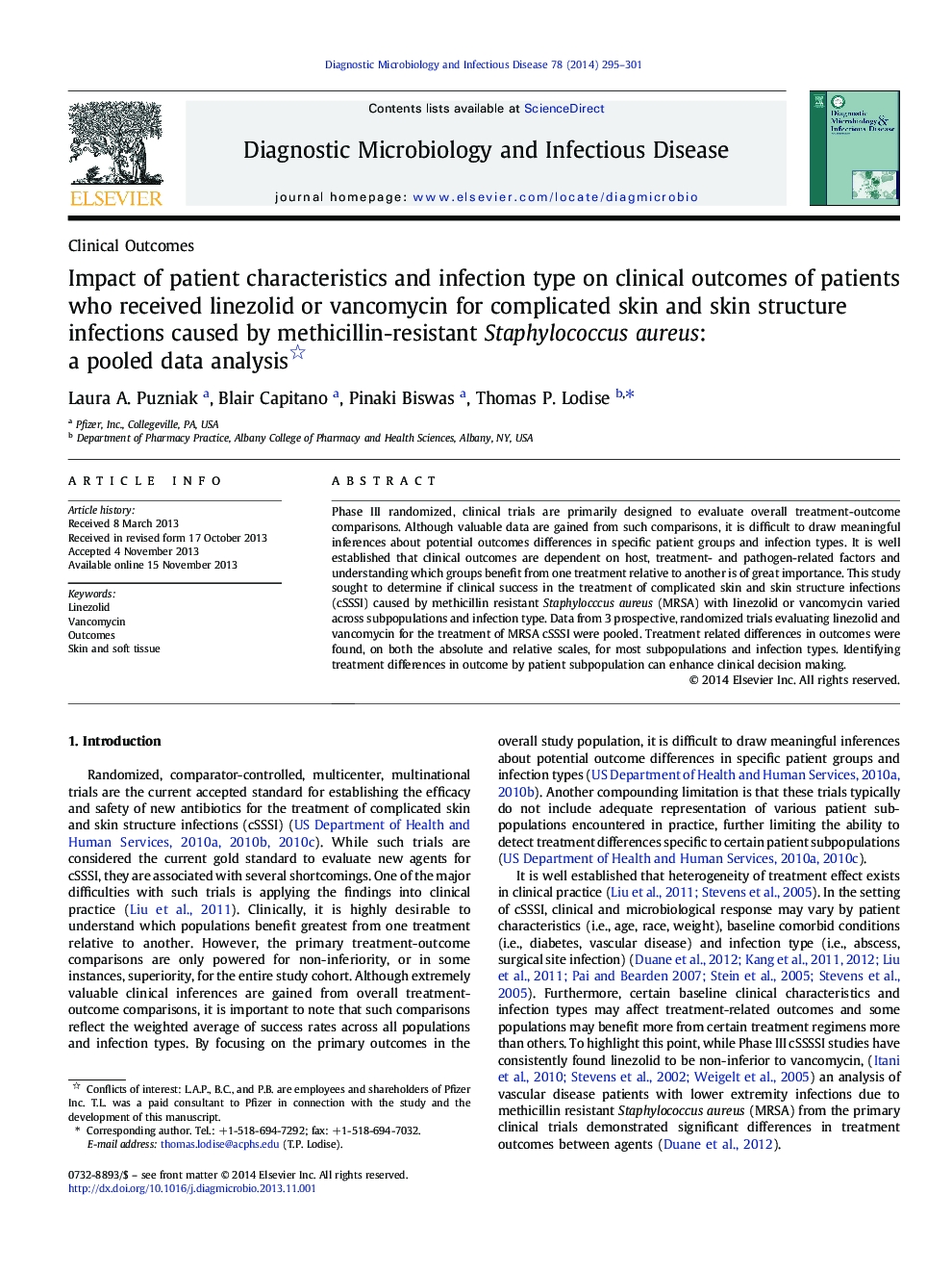| Article ID | Journal | Published Year | Pages | File Type |
|---|---|---|---|---|
| 3347020 | Diagnostic Microbiology and Infectious Disease | 2014 | 7 Pages |
Phase III randomized, clinical trials are primarily designed to evaluate overall treatment-outcome comparisons. Although valuable data are gained from such comparisons, it is difficult to draw meaningful inferences about potential outcomes differences in specific patient groups and infection types. It is well established that clinical outcomes are dependent on host, treatment- and pathogen-related factors and understanding which groups benefit from one treatment relative to another is of great importance. This study sought to determine if clinical success in the treatment of complicated skin and skin structure infections (cSSSI) caused by methicillin resistant Staphylocccus aureus (MRSA) with linezolid or vancomycin varied across subpopulations and infection type. Data from 3 prospective, randomized trials evaluating linezolid and vancomycin for the treatment of MRSA cSSSI were pooled. Treatment related differences in outcomes were found, on both the absolute and relative scales, for most subpopulations and infection types. Identifying treatment differences in outcome by patient subpopulation can enhance clinical decision making.
